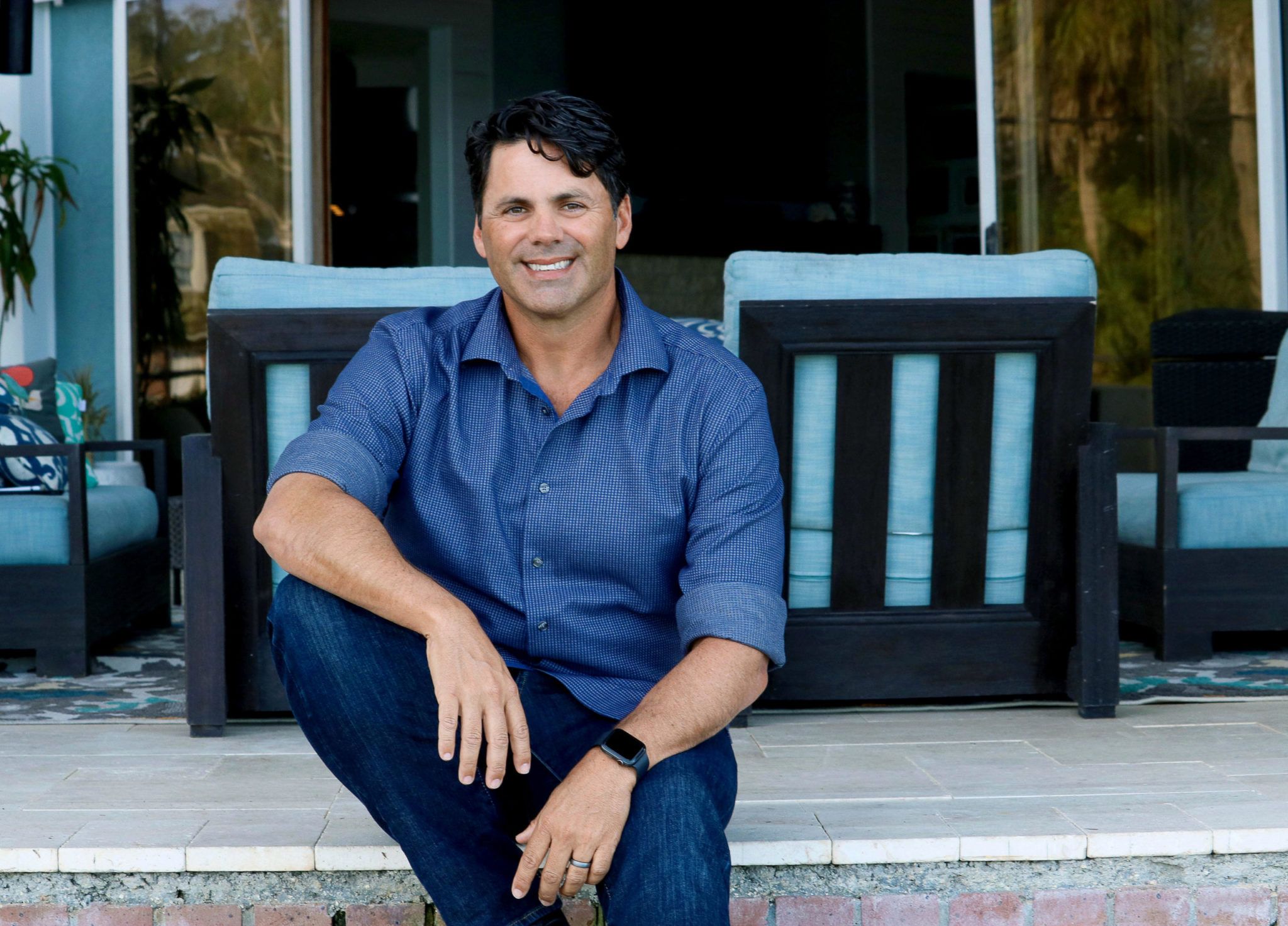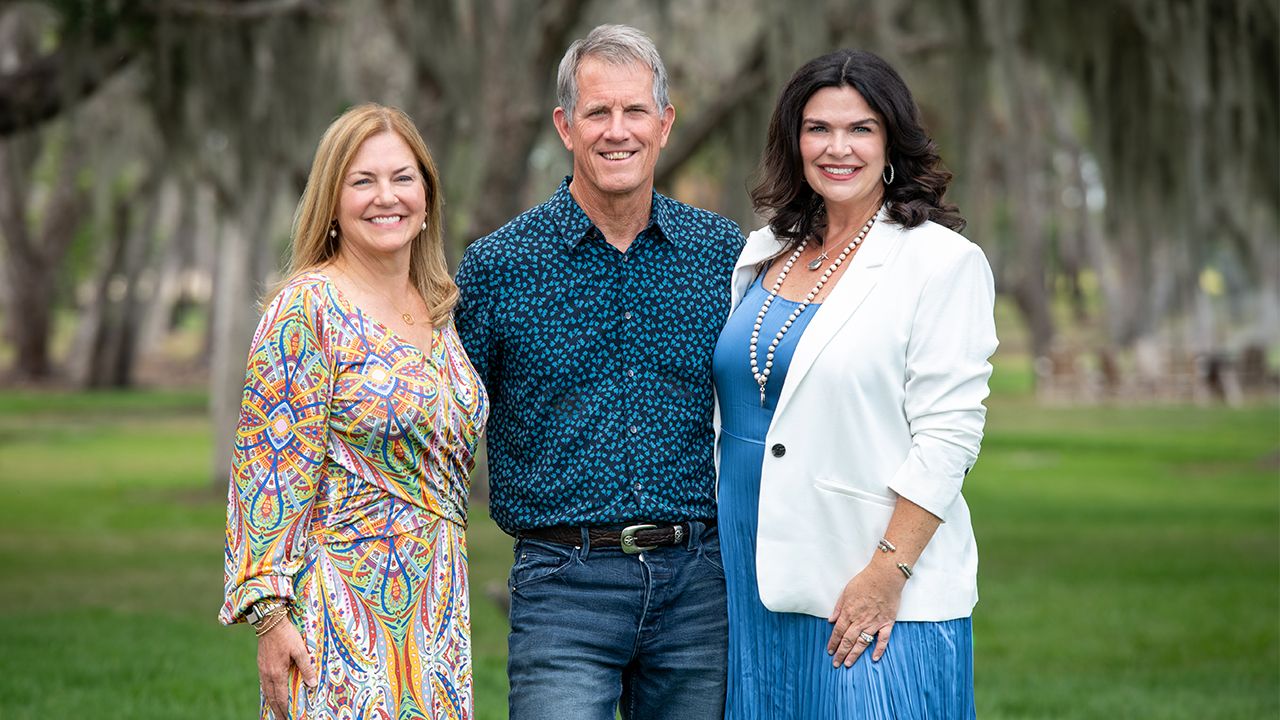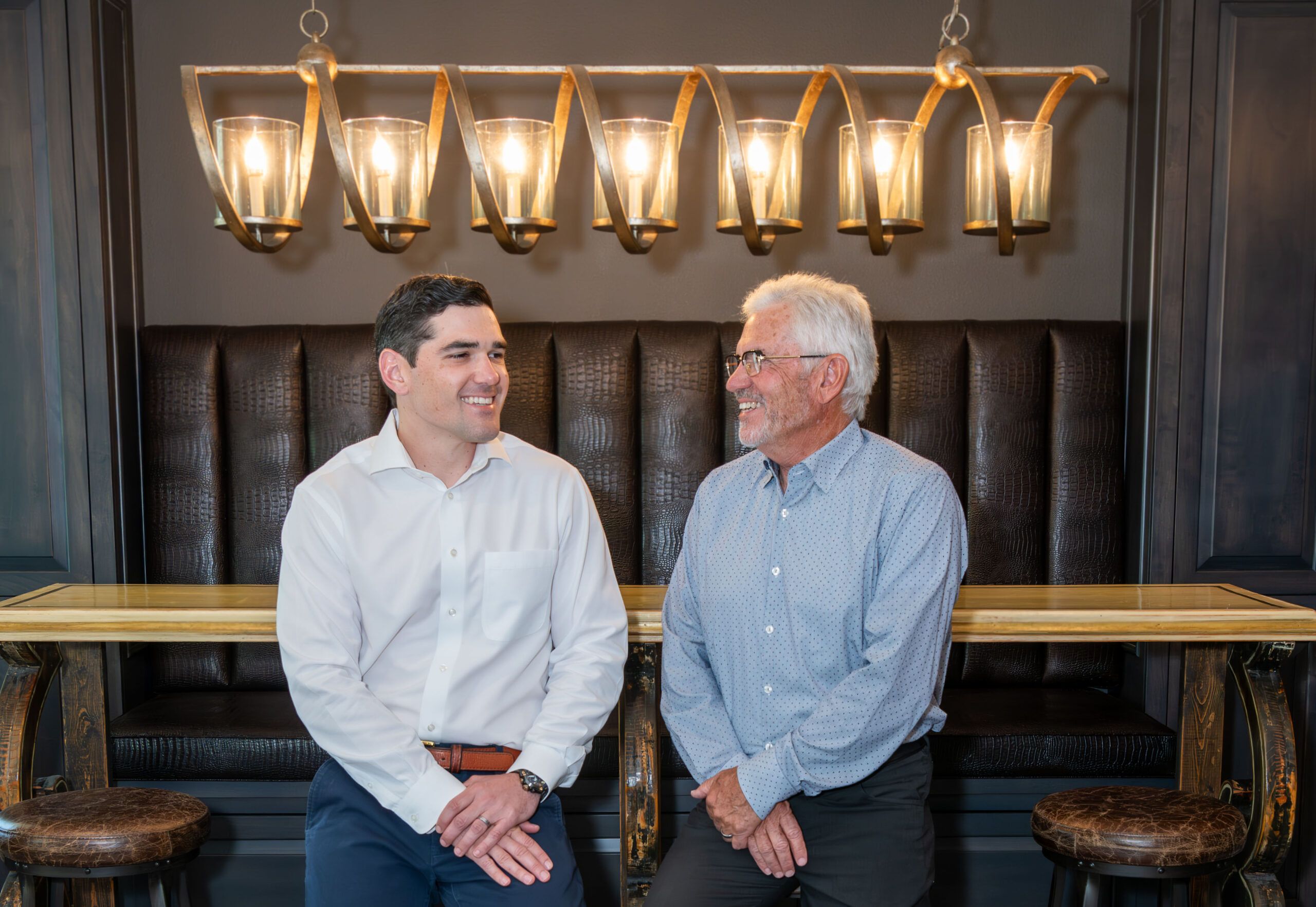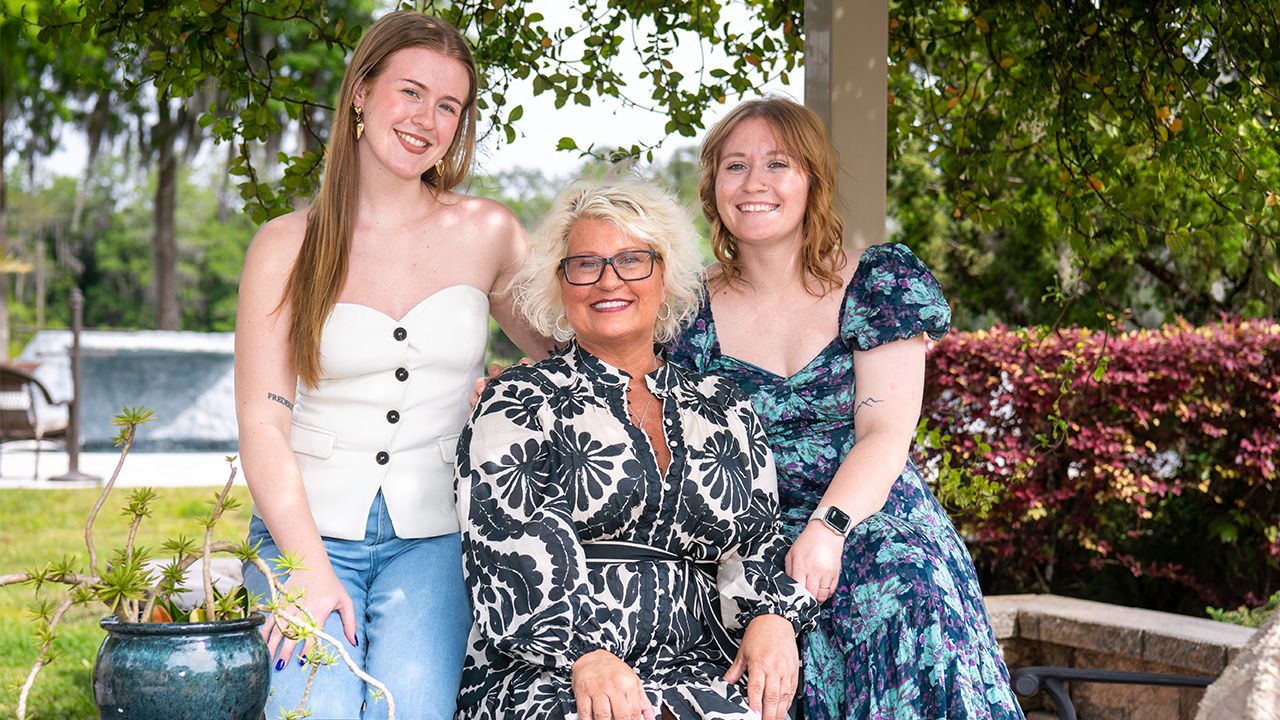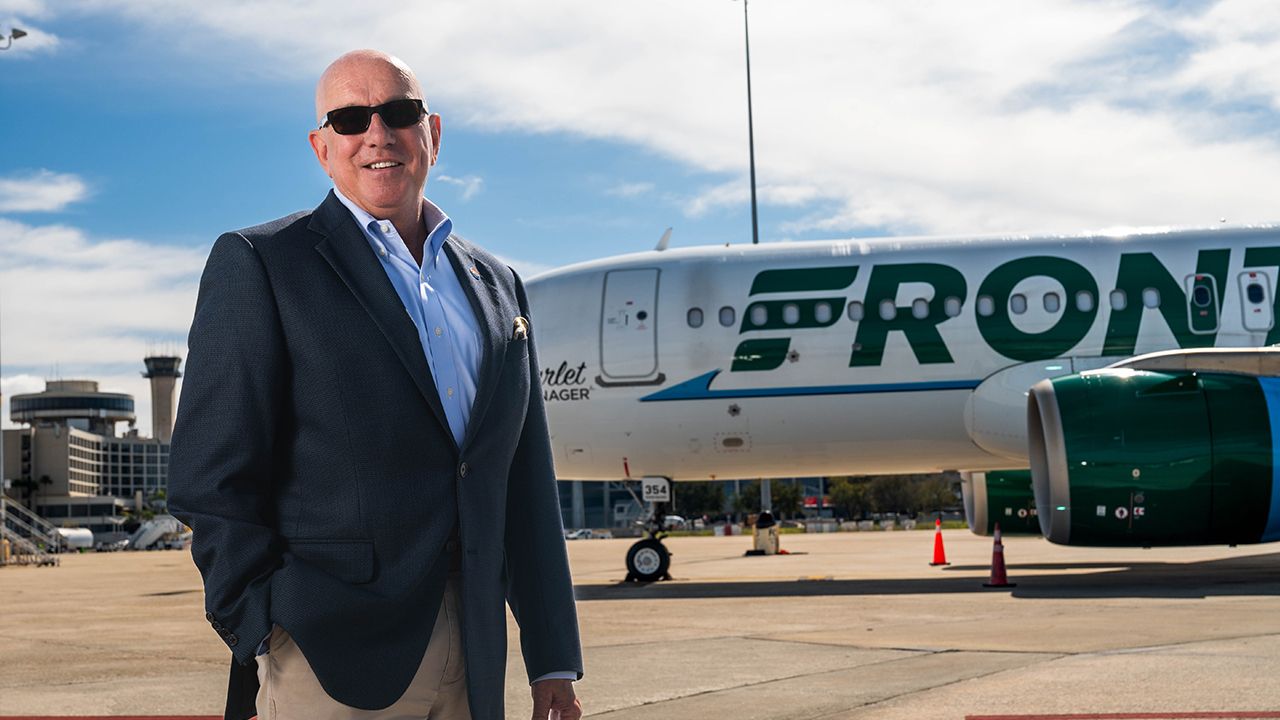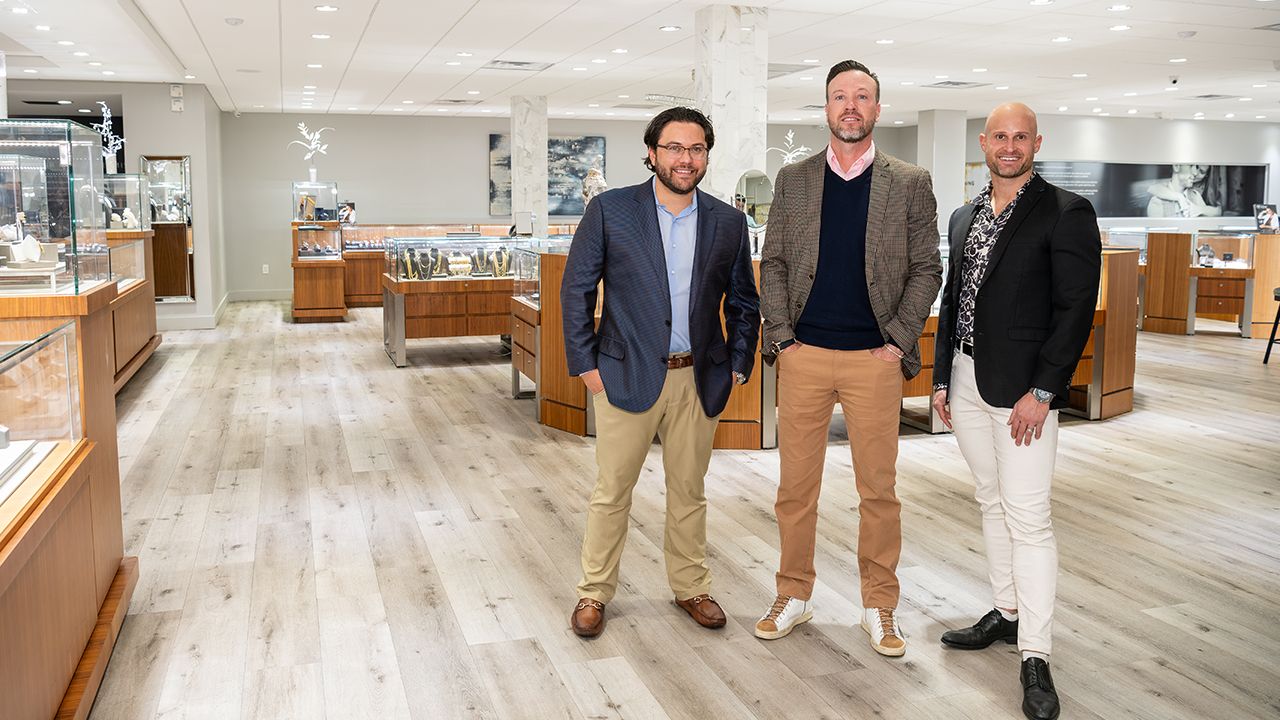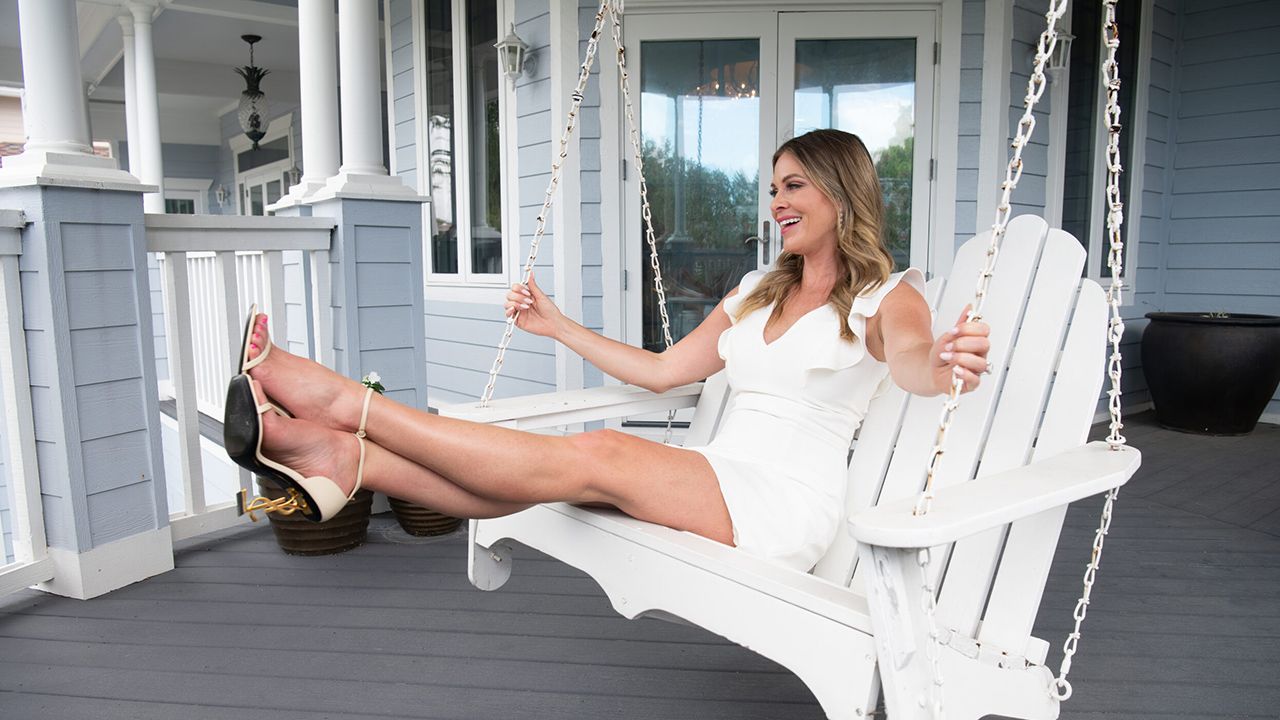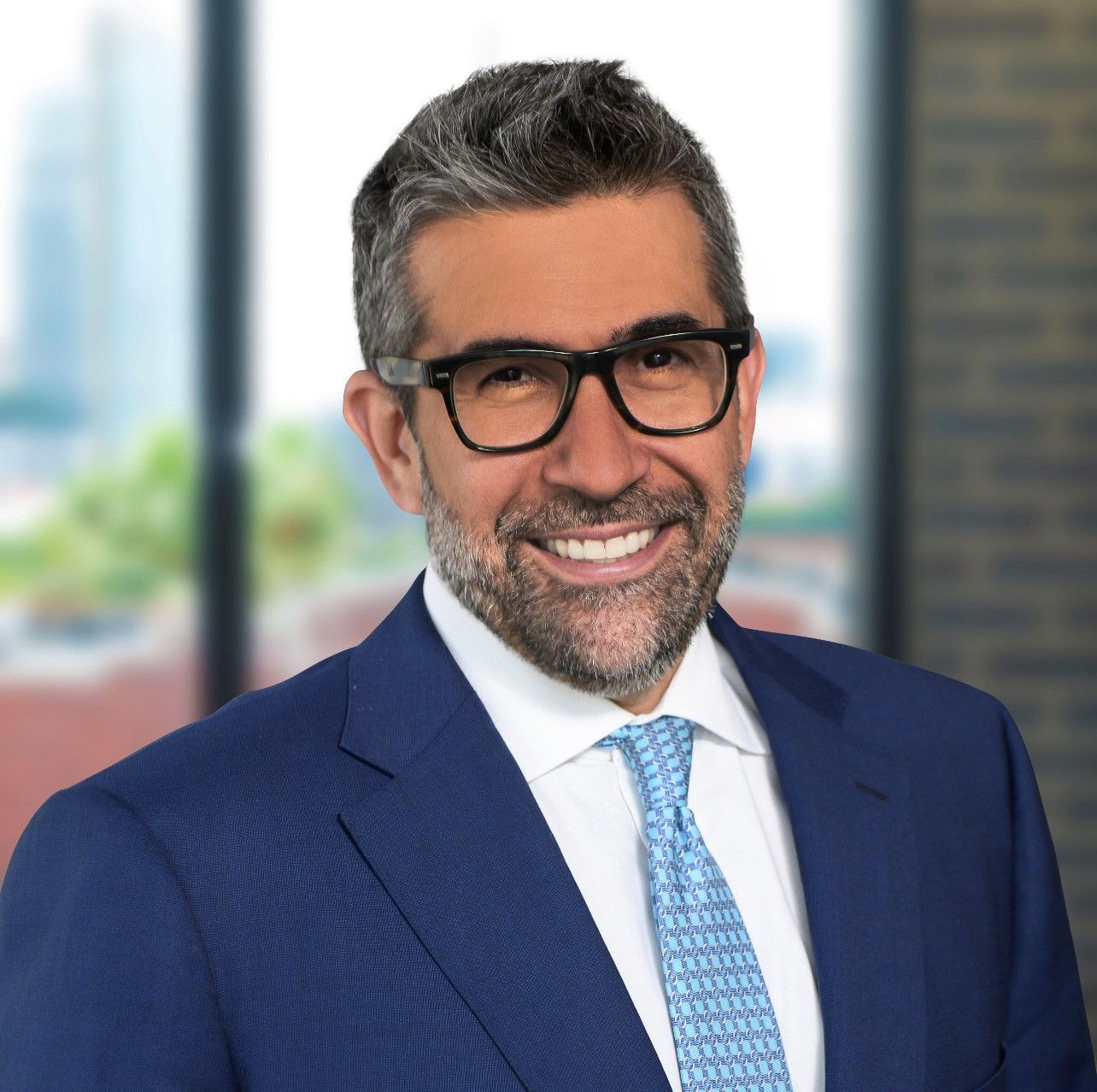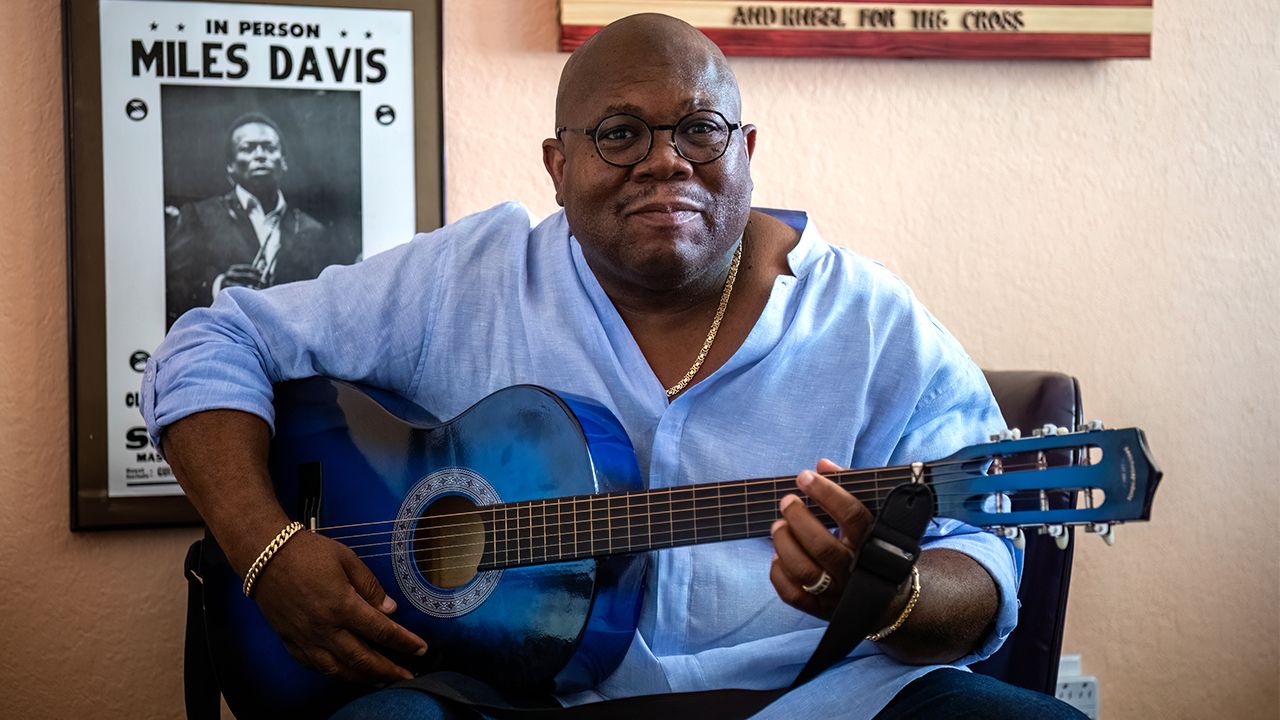You might hear an accent when talking to Joe Johnson. Born in the United States, he spent his formative years in Brazil and, to this day, he carries a slight Portuguese twang to some of his words.
It’s a breezy day in February at his home in Bradenton when he recounts the story of his early life, which symbolizes his tenacity as a person and a business leader.
Raised in Brazil, his family returned to the United States when he was 12. He had to learn English and adapt from a busy South American lifestyle to a rural American way of life in Ashland, Ohio.
Hungry for independence, he started working before he could drive a car and, by the time he was 21, had his first business failure—one he learned a great deal from. But he never gave up and still to this day pushes himself to find new challenges to take on.
The serial entrepreneur, with a doctoral degree in entrepreneurial leadership, has worked in the field of entrepreneurship and organizational leadership for more than 25 years.
Johnson is the founder, and a shareholder, of Welfont Companies, a commercial real estate brokerage and services firm based in Tampa, and he is the founder and CEO of OXLOS, a new startup based in Bradenton.
In 2018 Welfont had revenue of $20.4 million. That same year, it was listed on the Inc. 5000 as the 16th fastest growing business in the country, and the No. 1 fastest-growing real estate brokerage business in the history of the Inc. 5000 with a 3-year revenue growth rate of more than 11,300 percent.
When asked how Johnson and his team manage that growth, he said with a laugh, “You don’t. It manages you.”
***
Johnson’s parents fell in love before they could speak each other’s languages.
“My dad was from upstate New York. But in the summers, he would go to Brazil to build churches with his college. He met my mom there,” Johnson recalls. “My mother did not speak much English and my father did not speak Portuguese. But they somehow fell in love and would write letters back and forth to each other and their friends would translate their letters. Nine months later, my dad went back to Brazil and they got married.”
Clearly having nothing but admiration and love for his parents, he laughs openly about their love story.
“When my dad and my mom got married, they had to have an English-Portuguese dictionary to communicate with each other while on their honeymoon. So I always tell people, communication is overrated in marriage.”
Johnson says it tongue in cheek. He married his wife at 23 and they have six children together.
When Johnson’s family moved back to the States when he was 12, he lived in the small Ohio town of Ashland.
“I was not a happy camper because I loved Brazil … I went from a city in Brazil with millions of people and public transportation, to a farm town of 12,000 people. That was a rude awakening for me,” he says.
After his family moved back to the States, it was like starting all over again. His parents worked with a church and Johnson knew if he wanted anything, he had to find a way to earn it.
He established his first business while in high school and quickly began making money, which he saved for personal expenses and college.
“I probably didn’t know it at the time, but I was not a great employee. I liked to call my own shots. I was self-motivated, but when I worked for a caterer, I didn’t like showing up at a certain time and doing what I was told. I would rather say, ‘What are the problems that need to be solved?’ and do that,” Johnson says.
His first business mowing lawns grew, as Johnson hired friends from school to help out and book more jobs.
As many others have experienced, an unexpected crisis occurred that presented an opportunity.
 “One year there was a drought. I didn’t have any ongoing contracts, so I wasn’t making any money. I decided to do something different. I started advertising that we also did landscaping. This was when I was still in high school. I started getting a lot of calls for landscaping. We did a good job even though at first, we had no idea what we were doing but I decided we’d figure it out,” he says. And he did.
“One year there was a drought. I didn’t have any ongoing contracts, so I wasn’t making any money. I decided to do something different. I started advertising that we also did landscaping. This was when I was still in high school. I started getting a lot of calls for landscaping. We did a good job even though at first, we had no idea what we were doing but I decided we’d figure it out,” he says. And he did.
After spending some time at Ohio State University, Johnson made the decision to go home and expand his landscaping business. After his most senior employee left to start his own company, taking Johnson’s customers with him, Johnson’s business took a hit.
On top of that, he adds, “Jobs that cost us $20,000 to complete, his former employee and now competitor, was bidding those jobs at $10,000 to $12,000. And that’s a lot of jobs…If I had more experience, I would have seen it coming.”
Instead, at 21 years old, Johnson experienced his first business failure. He returned to school and earned an MBA, determined to brush it off, learn from it and try again. After graduating, he decided to go to work for someone else and get more experience.
“In every interview, I was either overqualified because of my previous business experience, or I was much younger and underqualified and I was competing with people who were 30 years old,” he says.
That’s when Johnson got creative. He purchased a database of CEO names of small companies in technology, construction and biotechnology.
“I knew I had to go for smaller companies—that I had more opportunity there than with the larger companies. So, at the time, I didn’t realize this, but this was my first experience with marketing and direct marketing,” he says. “And I wrote a letter—the same letter—and I printed 2,000 resumes out of my college computer lab printer, and a cover letter, and I remember signing all 2,000 letters. Folding the resumes, sending them.”
Out of the 2,000 mailings, he got four phone calls, two interviews and one job offer.
“However, the job offer I got was to be a CFO of a $12 million technology company called Virtual PCs. If I had done the traditional route, I would have started at an entry-level job and maybe spent 10 years struggling to climb the corporate ladder as an accountant or something else,” he says. “I started my first job right out of college in the C-Suite. But there was a catch that I learned later. After my wife and I moved to Toledo, Ohio, I found out that these guys are going bankrupt and they probably have a few months left, if that. But because I had gone through a prior business failure, I did not panic. At least, I knew what not to do.”
He warned the owners and told them what was coming. They asked him what he would do. He advised them to streamline everything, cut divisions that are not profitable and cut all unnecessary costs.
They liked his ideas and promoted him to CEO within three months of starting his job as CFO.
“After a year, the company turned around. We went from 50 employees to 10, but we went from losing money to making money. And we were able to cut things that were dragging the company down,” Johnson says. None of this would have been possible without the experience he got with his own business failure at 21 years of age.
***
Johnson loved the Florida lifestyle, as it was obviously much closer to the climate of Brazil than Ohio. His wife was from Ohio, and her family was there, so it wasn’t an easy sell to convince her to move. During the winter months, he’d try to pitch the idea of moving to Florida.
“I believe it was 2007 and I had almost given up in trying to convince my wife to move here. But we had a bad snowstorm that year, in the middle of May, ” he says. “So, that storm took my wife over the edge and she said, ‘let’s do it.’”
At the time, Johnson was doing consulting work for troubled companies, as well as owning his own business.
“Because of my own experience, I had learned some skills about turning things around even though it was usually high stress and high-risk work. At least I’d learned what NOT to do. But in the process, I learned how to negotiate with key stakeholders and try to get everyone to be a part of the same team and say: Here are our options, what options do we want to take, and figure out a way to make a bad situation better,” he says.
Over time, Johnson migrated more to focus on high growth startups instead of trying to turn around troubled companies. Both are high risk, in nature, with a high failure rate, he says, but startups have a lot more creative energy.
In 2014, Johnson was looking for another startup to take on, so he asked himself, “What was the last startup that failed? Real estate! Okay, let me revisit that!’”
Not wanting to waste the critical lessons learned from failure, he eventually launched the Welfont Companies.
“There was really no real estate brokerage and services company that represented nonprofits. And nonprofits have special needs. When it comes to buying real estate, nonprofits also have tax advantages that regular people and regular companies, do not have,” Johnson says.
He saw this void in the marketplace, created a company, funded it and put together a team to fill this void in helping nonprofit companies with their real estate needs.
In 2018, he started the process of transitioning out of running Welfont, to focus on launching a new company.
As of 2019, his full-time focus is on launching a new and completely different startup in the education space.
“People are starting to rethink education in general. I used to be in the field that focused on entrepreneur education and investor education. There was a reason why that field was growing and is still growing,” Johnson says. “So I’m starting a company focused on that. Focused on non-traditional education for entrepreneurs, investors, all kinds of different areas that I think higher education does not do a good job preparing people for.”
The higher education industry is in the process of being disrupted, and Johnson plans on being part of the disruption.
His first step is to launch a live event, and digital media business focused on these unique target markets to develop a solid customer funnel.
The name of his new startup is OXLOS. He has already funded it with seed capital and built his initial startup team.
Unlike his prior ventures, Johnson doesn’t see OXLOS as a startup to build and let someone else run it.
To him, it’s a true passion and his hope is to spend the rest of his life building this business, he says.
“Due to the unique vision of this business there will be a lot of unique startup opportunities for me to use my entrepreneurial gifts, within the context of building this company,” Johnson says.
***
As an entrepreneur, Johnson has many entrepreneurial support systems that he relies on, like the C-12 Group, Legacy Business Leaders and TIGER 21, a peer-to-peer learning network for high-net-worth investors.
“A lot of people who get to have the fortunate circumstances to be in my position end up golfing more or fishing more. Now, I like all those things. But that’s just not who I am,” Johnson says. “I thought: I’m going to observe all my TIGER 21 members and ask myself, what did they end up doing after they stepped away from their businesses? I spent a lot of time praying about my next endeavor. And at the end of the day, I realized that I’m an entrepreneur. And that’s what I love to do. I love to start a business and build it. ”
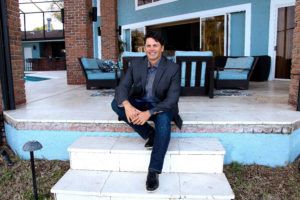 He said being a part of TIGER 21 provides answers to the questions that most business leaders ask themselves. How do you manage a certain problem? What is the most effective way to deal with an issue?
He said being a part of TIGER 21 provides answers to the questions that most business leaders ask themselves. How do you manage a certain problem? What is the most effective way to deal with an issue?
“At TIGER 21, we bring different experiences to the table. As for Joe, he is a ground-up entrepreneur who can come up with novel ideas and then execute them – a rare and effective combination. He has been an inspiration to me as I’ve watched him simultaneously grow his existing business while formulating his next endeavor,” says Wesley Barnett, a TIGER 21 member.
“The people around the table have already had success. And so their advice is a little more filtered because they’ve had to go through the ups and downs and they’ve ended up on top,” Johnson says. “So when I’m thinking about important issues that I am facing, I run it by them. TIGER 21 has just been great because you have that peer group that has been there and knows what it’s like to get to the other side successfully. Although we’re very different, most of us have been entrepreneurs.”
***
Johnson says he looks at faith-based, and entrepreneurial elements when he makes philanthropic decisions.
He’s very involved with Bayside Church in Bradenton, as well as other Christian ministries that have had a big impact on his life. However, one of his passions is microfinancing. He chooses to provide no-interest loans to people in underdeveloped countries, to help with a business endeavor.
“I started doing this in 2012. Growing up in Brazil I saw a lot of poverty, and a lot of good-hearted attempts to fix it, that never did much in regard to long-term change,” Johnson says.
Microfinancing gives a hand up, instead of a handout, he says.
“You loan someone $3,600; it might change their life. They might own a corner store in Guatemala and now they have twice the inventory they had before. And you don’t get any interest, you just loan it out and as you get paid, you do more loans,” he says.
Since 2012, Johnson estimates he has helped fund over 15,000 microfinance loans to underprivileged entrepreneurs, with a repayment rate of over 98 percent.
“It’s a perpetual machine. You do have to fund some nonprofit organizations to make it work, like Kiva. But as a business owner, especially when you start out, capital is critical. So I can identify with a lot of people who don’t have the capital that they need to build their business. But the difference is that most of these people don’t have enough capital to pay for their meals for their next week. They’re focused on today – not even tomorrow. All of a sudden, they get a $600 loan for their micro business. They start to understand how investing in their business changes their life,” he says.
It’s just another example of how Johnson’s life story has built his character as a person and an entrepreneur.
Looking back on that first business in landscaping, Johnson believes that failures are inevitable and it’s how you learn from them that makes, or breaks, you in business.
“You look back and say, ‘OK, why did I fail? What worked, what didn’t work, what adjustments can I make and how can it work this time?’ A lot of times for entrepreneurs, if they go through a failure, it’s so psychologically discouraging for them as they go through the years that it is too much for them to overcome and they never try again. Fortunately, for me, either I didn’t know any better or I had nothing to lose and I would just try again,” he says.
Being a man of faith, one of Johnson’s favorite Bible verses is James 1:2 which says: “Consider it pure joy, my brothers and sisters, whenever you face trials of many kinds because you know that the testing of your faith produces perseverance. Let perseverance finish its work so that you may be mature and complete, not lacking anything.”
It is in perseverance and faith, developed through trials and tribulations, where Johnson found business success. ♦
Photos by Maya Mouis



